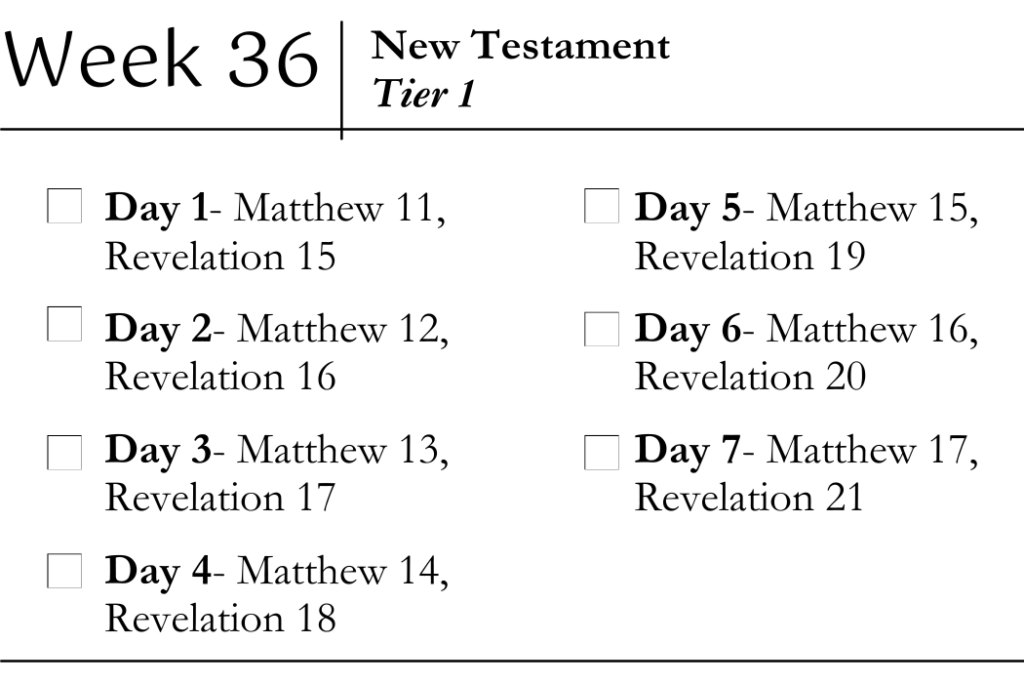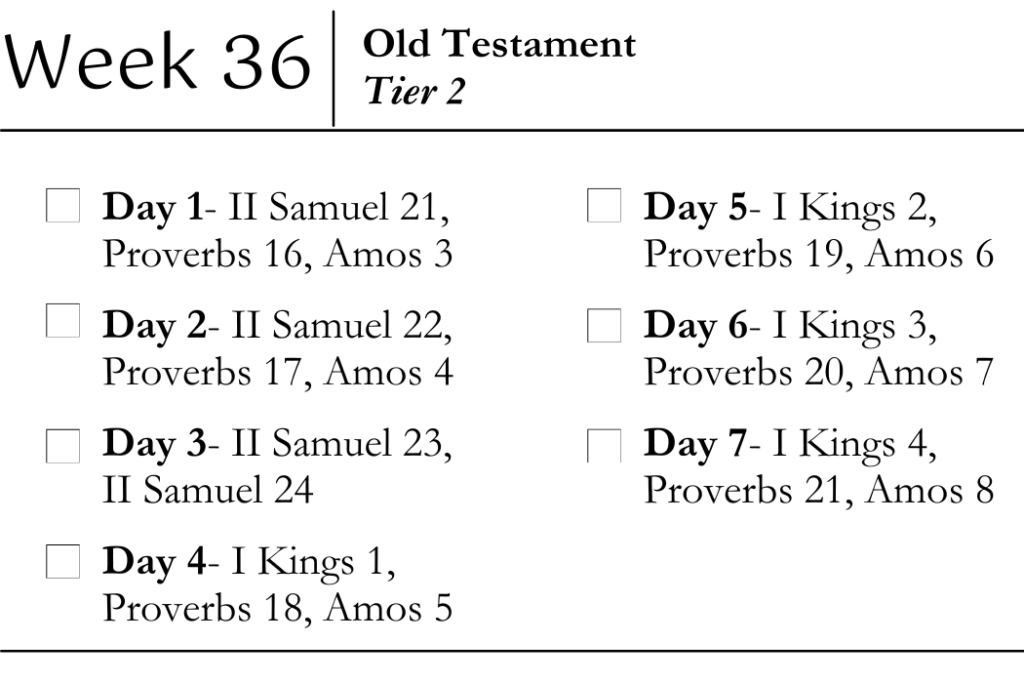The Bible we hold today became a Man 2,000 years ago.
Imagine the Bible we hold today was made flesh 2,000 years ago. This Word we hold today was with God, and the Word was God. He was in the beginning with God. Imagine with me that all things were made through Him and without Him nothing was made that was made. Now imagine this Bible that we hold today was life and the life was the light of men. The light shines in darkness and the darkness cannot overcome it. All this is beyond our imagination; it is the first five verses in the Gospel of John and is eternal. No wonder so many wonderful things happen to us as we read the word daily and no wonder all that opposes God fears only the Word of God in us.
We continue this week in Revelation, all the way to the New Jerusalem. God is in complete control, Jesus our King is judging the earth, Babylon falls, and the wedding of the Lamb takes place in glorious contrast to the harlot, Babylon, who has corrupted the earth with her fornication. Now in our third reading of Matthew this year we are brought to John the Baptist’s disciples questioning is Jesus the One? Jesus calls all who labor and are heavy-laden to come to Him and take His yoke upon them. The parable of the Sower, John the Baptist’s beheading, Peter’s confession of Jesus, the Christ, and onto the Mount of Transfiguration. We journey with Jesus as He moves toward the completion of His assignment on earth.
Amos continues to call us out of our complacency into repentance and to return to the Lord, but no one wants to listen and take it to heart. Proverbs continues with wisdom for the wise as we finish the life of David, and Solomon begins his reign and his requests from God for wisdom.
WATCH That I May Know Him Week 36 PODCAST

GOSPELS
Matthew 11 – 17
These are rich days in Jesus’ ministry, He is at the height of his popularity as He moves towards His destiny as the Lamb of God, to take away the sin of the world. Doubts arise in John the Baptist’s camp leading him to seek counsel and Peter gives his revelation of Jesus, the Christ,—which is quickly misappropriated for immediate human benefit and must be rebuked by Jesus as “Satan,” (Matthew 16:23). As we read these chapters, let’s take the time to listen, in context, to Jesus’ mission as He shifts from revealing Himself as Son of Man to become the sacrifice for all man. Listen for the eternal truths He is telling His disciples in parables and warnings. Jesus is preparing His disciples for how they (and we) will live after His resurrection has gained for us eternal salvation.
REVELATION
Revelation 15 – 21
I have purposed not to give a chronological record of events in Revelation because I don’t believe these are helpful or even accurate. In Revelation 11, we enter into the last three and half years, so things are very intense as the Lord judges the earth. Choices mean everything, and people have made their decisions. The Lord is dealing with false worship, false images, and false prophets. Babylon will be judged, the wedding of the Lamb consummates, and the great army led by “The Word of God,” (Revelation 19:13) are all before us. We enter the new millennium in Chapter 20 and then the new heaven and earth with the Bride, the “Lamb’s wife,” descending from heaven in Chapter 21.

HISTORY
2 Samuel 21 – 24
David has recovered somewhat from the consequences of his sin with Bathsheba and seeks the Lord for why and what to do in famine. He is shown sin in a broken covenant with the Gibeonites through Saul and initiates reconciliation with them. Many old and not reconciled issues, even concerning Saul, are dealt with in Chapter 21. Chapter 22 will sound familiar, for it is when David pens what we know as Psalm 18: “Then David spoke to the Lord the words of this song, on the day when the Lord had delivered him from the hand of all his enemies and from the hand of Saul” (2 Samuel 22). David’s last words and his census—which leads first to judgment and then to the discovery of where the temple is to be built—happen in the last two chapters of 2 Samuel.
1 Kings 1 – 4
We see David, old and cold, becoming inactive and unaware that his son Adonijah is planning a coup. Nathan the prophet and Bathsheba help David see and rise up and lead again his nation into God’s plan for the succession of Solomon to become king. Solomon is then given instructions for house cleaning after David is gone. In Chapter 3 Solomon is given the offer of a lifetime from God, “Ask! What shall I give you?” (1 Kings 3:5). Solomon chooses wisely, and his wisdom is seen in his judgment between two women: the ability to discern between love and selfishness. Solomon’s reign, prosperity, and wisdom continue to grow in Chapter 4.
POETRY
Proverbs 16 – 21
We are in great gems of wisdom, often using the art of comparisons:
“The preparations of the heart belong to man, but the answer of the tongue is from the Lord.” (Proverbs 16:1)
“Better is a dry morsel with quietness, than a house full of feasting with strife.” (Proverbs 17:1)
“A man who isolates himself seeks his own desire; He rages against all wise judgment.” (Proverbs 18:1)
“Better is the poor who walks in his integrity than one who is perverse in his lips and is a fool.” (Proverbs 19:1)
“Wine is a mocker, strong drink is a brawler, and whoever is led astray by it is not wise.” (Proverbs 20:10)
“The king’s heart is in the hand of the Lord, like the rivers of water; He turns it wherever He wishes.” (Proverbs 21:1)
PROPHETS
Amos 3 – 8
Can we learn today what God is saying to us, through these prophets of old? I am trying with all my heart to soften, listen, and respond to the Lord’s ways with us, His covenant people. Hosea married a prostitute to show Israel the condition of their heart and God’s way to restore them. Joel spoke of God’s great army of locusts that had devoured the land and would return if repentance was not acted upon in a great return to the Lord. But when done, Joel spoke of such great restoration of all things, even to the baptism of the Holy Spirit coming. Amos, must declare what the Lord says, “Can two walk together unless they are agreed?” (Amos 3: 3) And then a few verses later, “Surely the Lord God does nothing, unless He reveals His secrets to His servants the prophets” (Amos 3:7).
The Lord shows in Chapter 4, His disciplines that have gone unheeded five times, “Yet you have not returned to Me.” (Amos 4:6, 8-11); “Seek Me and live.” (Amos 5:4); “Woe to you who are at ease in Zion” (Amos 6:1). A vision of locusts, in Chapter 7, brings Amos into intercession and pleading with the Lord to relent: “‘O Lord God, cease, I pray! Oh, that Jacob may stand, for He is small! So the Lord relented concerning this. ‘This also shall not be,’ said the Lord God” (Amos 7: 5, 6).
In Chapter 8, we hear the words that the Apostle Paul will utter years later in 2 Thessalonians, as the great falling away occurs through believing the lie and not loving the truth. Amos calls it a famine of “Hearing the words of the Lord” (Amos 8:11).

